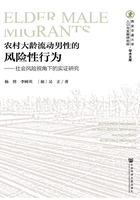
ABSTRACT
In the situation of marriage squeeze and population migration, ruran-urban male migrants are the typical disadvantaged group and the first wave of risky victims who are directly and adversely affected. Among them, involuntary unmarried males who suffer from marriage squeeze will be the most disadvantaged members. They will experience the double risky circumstance, which includes both marriage squeeze and migration trend. In lack of marriage sex activity, sex demands and nonmarital sex activities will be significant risky patterns for these involuntary unmarried males; besides, male migrants have been the main participants of risky sexual behaviors and they have already experienced risky tendecy of risky sex. Therefore, risky sexual behaviors, which are highly relevant to HIV/AIDS transmission in society, are Social risks to elder ruran-urban male migrants in the current situation. In the current relevant research fields, this sutdy is a compositive analysis including public health, social statistics, public management and policy science issues. The authors state the public security topic by discussing individual risks of reproductive health and relevant population risks. This analysis improves the knowledge of HIV/AIDS risk trend among mirrant males and is helpful for government and society to supply response policy and implementations.
The current study analyzes the risky sexual behaviors among ruran-urban elder male migrants using suevey data of“questionnaire for sexual and reproductive health among ruran-urban elder male migrants”in 2010, Xi'an city. Survival analysis and relevant multivariate statistics are used as the methodology. The whole study applies the perspective of social risk theory and takes social system theory as the main reference. By applying and developing the basic framework of social system theory in risky research, the current study discusses the risky reality of commecial sex and MSM homosexual behavior. Commercial sex is identifiedas the social risk of risky sexual behaviors. Based on this result, the perception of sexual risks, as well as the time meaning(past-future)of sexual risks, are discussedwithin the group of commercial sex participation.
Finally, based on the conclusions, we provide public pulicy suggestions for theprevention to risks of sexual and reporductive health among ruran-urban elder male migrants, including these involuntary unmarried males.